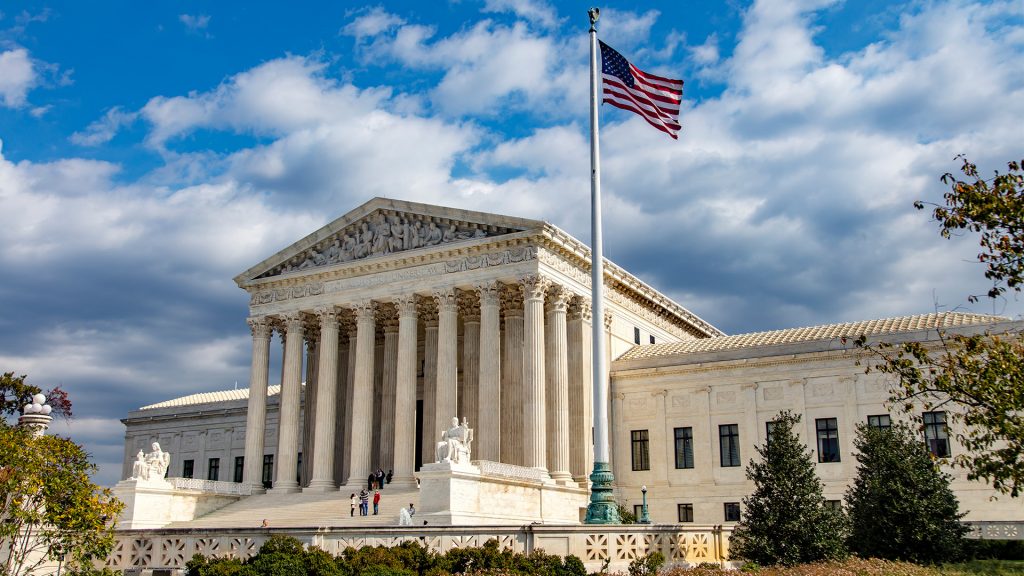Supreme Court to hear arguments on Trump’s birthright citizenship plan
Ella Greene April 18, 2025 0
- The Supreme Court agreed on April 17 to hear oral arguments regarding President Donald Trump’s plan to end birthright citizenship. Trump previously requested the justices to block a nationwide order that halted his executive order ending the practice.
- The 14th Amendment protects birthright citizenship and states that all persons born or naturalized in the U.S. are citizens.
- Legal challenges in Maryland, Washington and Massachusetts resulted in district court judges blocking Trump’s order.
Full Story
The Supreme Court agreed Thursday, April 17, to hear oral arguments in the case of President Donald Trump’s plan to end birthright citizenship. The president previously asked the justices to block a nationwide order that blocked his executive order ending the practice.
What protects birthright citizenship?
The 14th Amendment of the Constitution protects birthright citizenship. According to the amendment, “All persons born or naturalized in the United States, and subject to the jurisdiction thereof, are citizens of the United States and of the state wherein they reside.”
On his first day back in office, Trump signed an executive order arguing that the amendment has never been interpreted to extend citizenship “to everyone born within the United States.”
“The Fourteenth Amendment has always excluded from birthright citizenship persons who were born in the United States but not ‘subject to the jurisdiction thereof,'” the order stated.
Trump’s executive order states people born on U.S. soil to parents who are unlawfully present in the country, as well as those born to mothers who are in the country legally, whether on a work or tourist visa, should also not automatically become U.S. citizens.
Legal challenges across multiple states
Several legal challenges arose from Trump’s birthright citizenship executive order, including in Maryland, Washington and Massachusetts. District court judges in all three states ruled to block Trump’s plan from taking effect.
A senior U.S. district judge in Seattle halted enforcement of the order, calling birthright citizenship “a fundamental constitutional right.”
In Maryland, a U.S. district judge temporarily blocked the order, citing a lawsuit from immigrant rights groups and pregnant women.
A district court judge in Massachusetts eventually put Trump’s order on hold nationwide.
Supreme Court sets hearing date
The Trump administration requested that the high court intervene in March. The justices have agreed to take up the case, but they are leaving the lower court’s rulings in place for now.
Justices will hear arguments on May 15, with a decision expected in June or July.
Related Stories
Ella Rae Greene, Editor In Chief
Ella Greene
Ella and the staff at Clear Media Project (CMP) curate these articles.
Unless otherwise noted CMP does not write these articles.
The views, thoughts, and opinions expressed in the articles published on this blog belong solely to the original authors and do not necessarily reflect the views of the blog owner. The blog owner does not claim ownership of the content shared by contributors and is not responsible for any inaccuracies, errors, or omissions.
All rights and credits goes to its rightful owners. No Copyright Infringement is intended. If you believe any content infringes on your rights, please contact us for review and potential removal.





